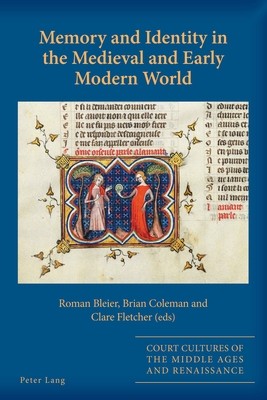
- We will send in 10–14 business days.
- Publisher: Peter Lang Ltd, International Academic Publishers
- ISBN-10: 1788744705
- ISBN-13: 9781788744706
- Format: 15.2 x 22.9 x 1.5 cm, softcover
- Language: English
- SAVE -10% with code: EXTRA
Memory and Identity in the Medieval and Early Modern World (e-book) (used book) | bookbook.eu
Reviews
Description
In both past and modern societies the concepts of memory and identity have been inextricably intertwined. Memory, through its power of recollection and reflection, is perceived as a central and necessary pathway for self-discovery, self-expression, and self-knowledge crucial to an understanding of the physical and spiritual world. Memory, in this way, becomes fundamental to identity itself, as it is through the complex process of both group and individual recollection and commemoration that cultural, political, national, religious, and gender identities are not only imagined but constructed, reconstructed, and represented.
Taking as its focus this complex interplay of memory and identity in the medieval and early modern European context, this volume of essays presents its findings under five thematic headings: ««The Poetics of Memory and Heroic Identity», «Cultural Memory and National Identities», «Emotional Identities», «Nota Bene The Craft of Memory and Corrective Instruction» and «Memorialising Protestant Identities in Early Modern England». Contributions examine constructions of memory and identity in such key works as the Old English Soliloquies; the Old Norse kings' sagas Morkinskinna and Heimskringla; medieval Serbian hagiographies; Havelok the Dane; Sir Gawain and the Green Knight; Chaucer's Book of the Duchess, Troilus and Criseyde and Adam Scriveyn; Elizabethan translations of the Psalms; John Stearne's Confirmation and Discovery of Witchcraft; seventeenth-century portraiture. The research presented here offers valuable insights into the centrality of memory to medieval and early modern constructions of political, religious, and national identities and points up future avenues for scholarly investigation.
EXTRA 10 % discount with code: EXTRA
The promotion ends in 19d.04:26:14
The discount code is valid when purchasing from 10 €. Discounts do not stack.
- Publisher: Peter Lang Ltd, International Academic Publishers
- ISBN-10: 1788744705
- ISBN-13: 9781788744706
- Format: 15.2 x 22.9 x 1.5 cm, softcover
- Language: English English
In both past and modern societies the concepts of memory and identity have been inextricably intertwined. Memory, through its power of recollection and reflection, is perceived as a central and necessary pathway for self-discovery, self-expression, and self-knowledge crucial to an understanding of the physical and spiritual world. Memory, in this way, becomes fundamental to identity itself, as it is through the complex process of both group and individual recollection and commemoration that cultural, political, national, religious, and gender identities are not only imagined but constructed, reconstructed, and represented.
Taking as its focus this complex interplay of memory and identity in the medieval and early modern European context, this volume of essays presents its findings under five thematic headings: ««The Poetics of Memory and Heroic Identity», «Cultural Memory and National Identities», «Emotional Identities», «Nota Bene The Craft of Memory and Corrective Instruction» and «Memorialising Protestant Identities in Early Modern England». Contributions examine constructions of memory and identity in such key works as the Old English Soliloquies; the Old Norse kings' sagas Morkinskinna and Heimskringla; medieval Serbian hagiographies; Havelok the Dane; Sir Gawain and the Green Knight; Chaucer's Book of the Duchess, Troilus and Criseyde and Adam Scriveyn; Elizabethan translations of the Psalms; John Stearne's Confirmation and Discovery of Witchcraft; seventeenth-century portraiture. The research presented here offers valuable insights into the centrality of memory to medieval and early modern constructions of political, religious, and national identities and points up future avenues for scholarly investigation.


Reviews